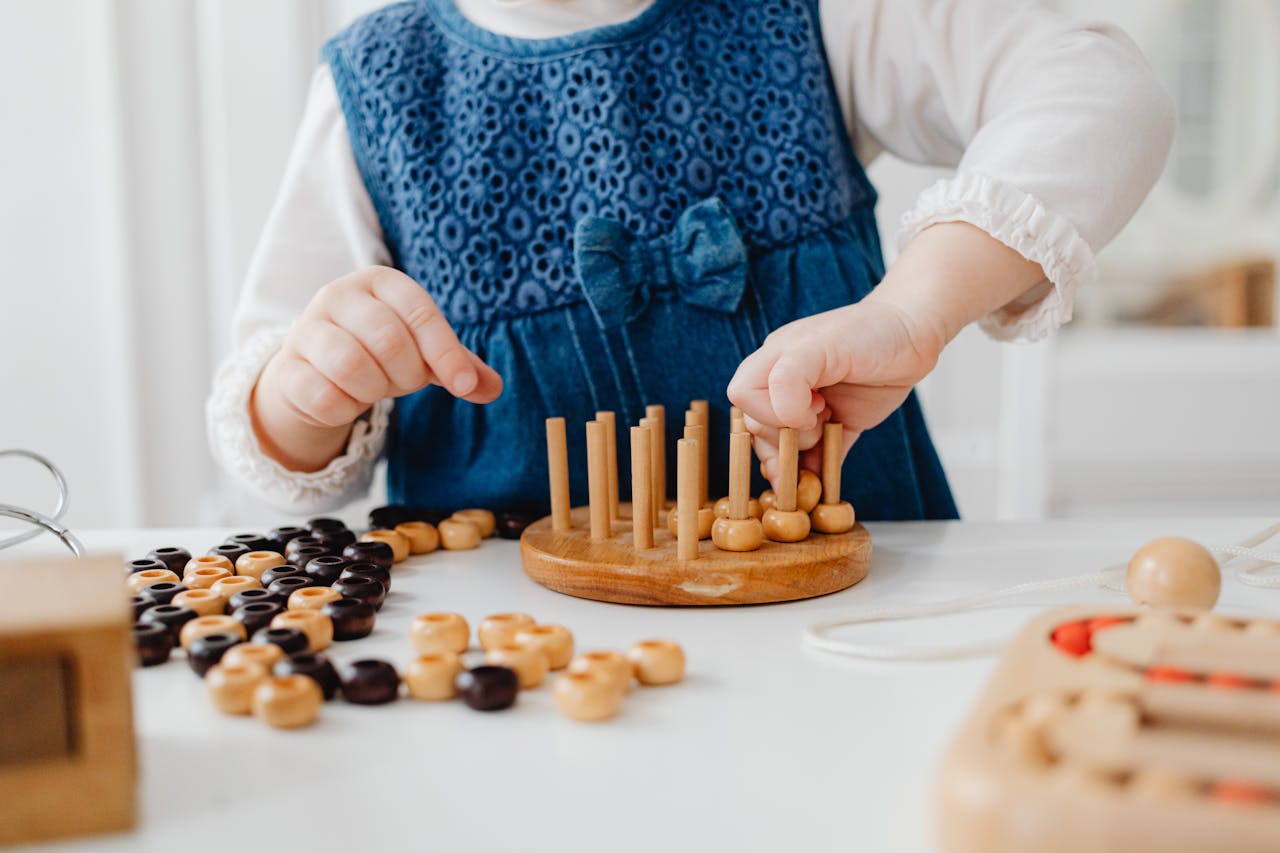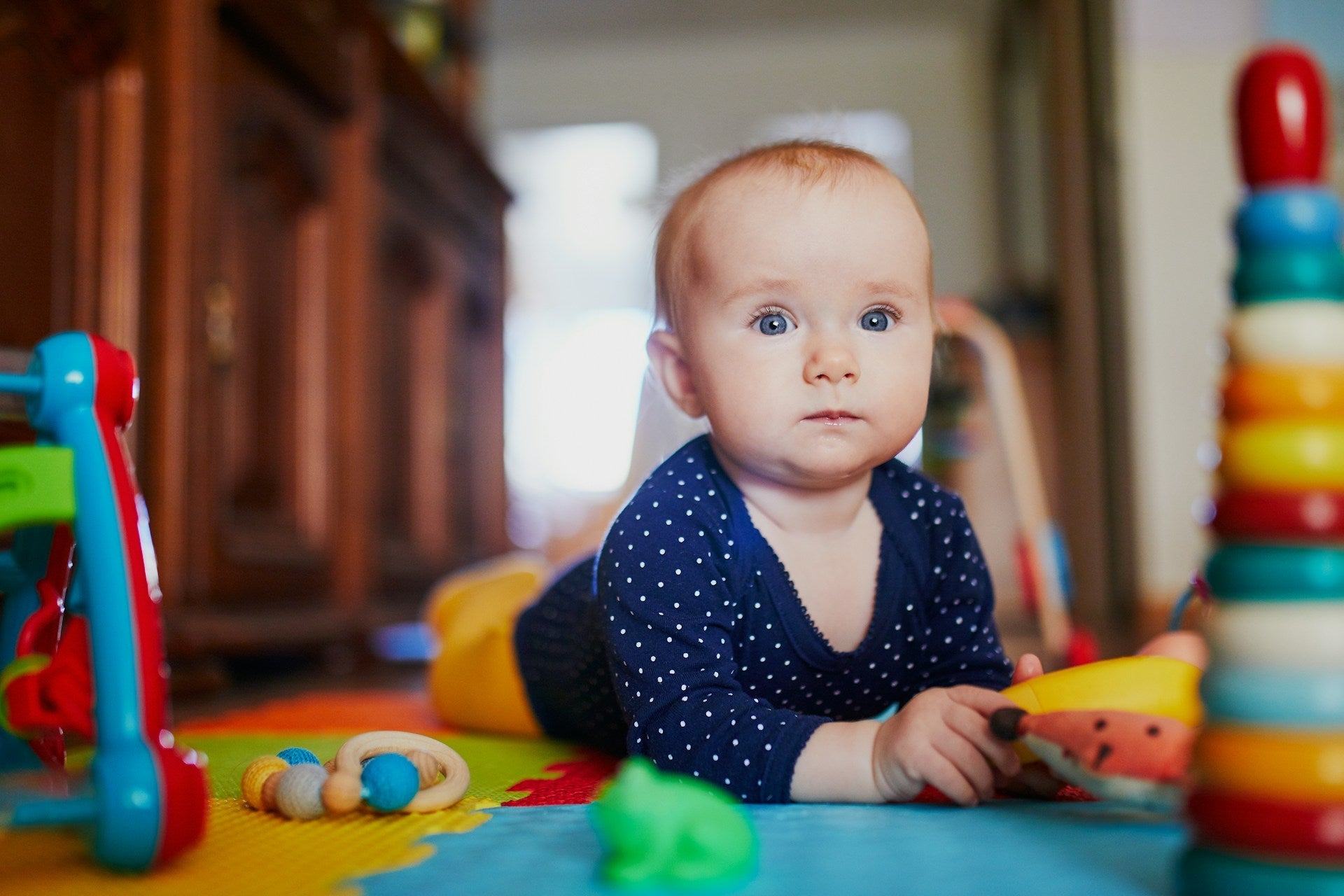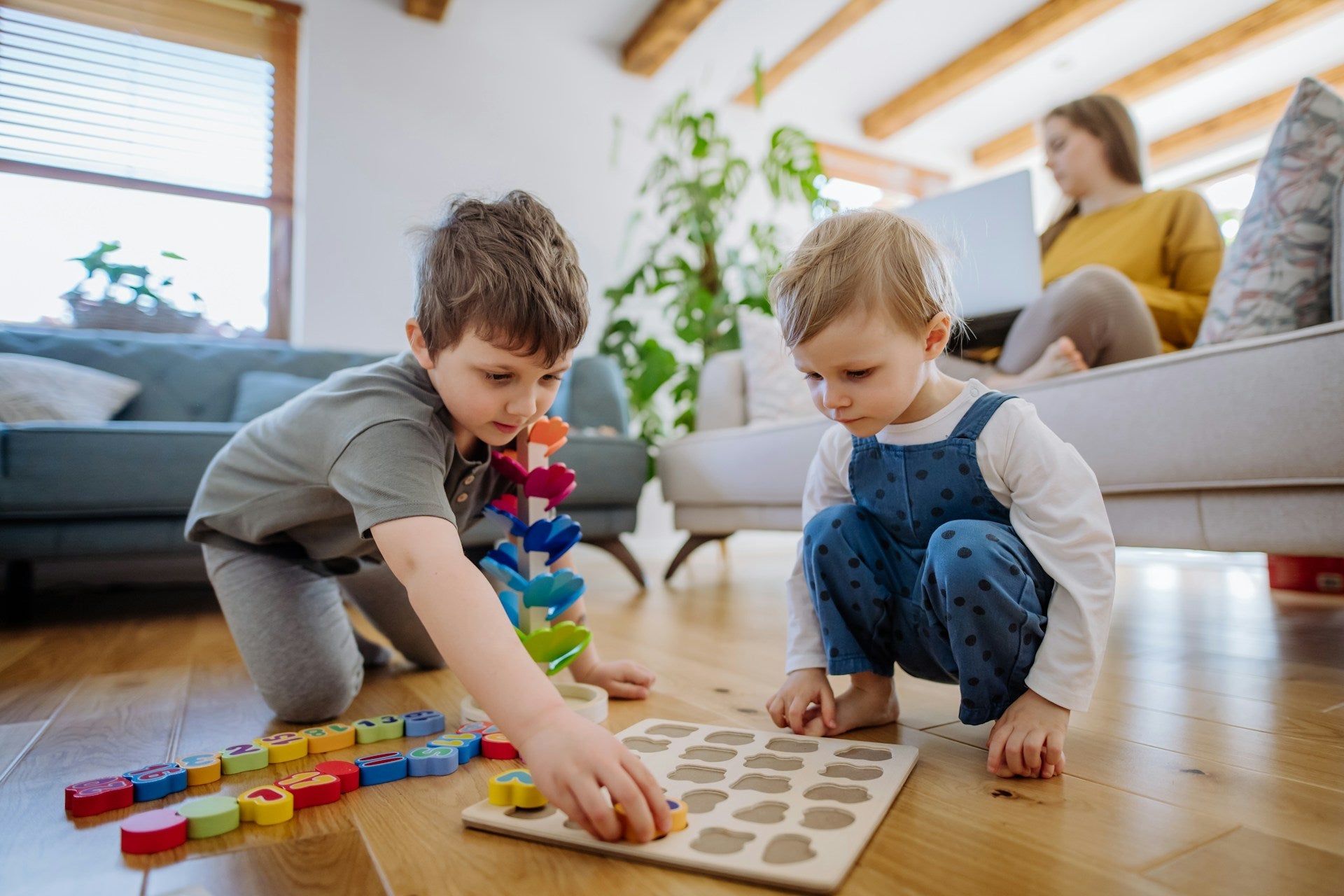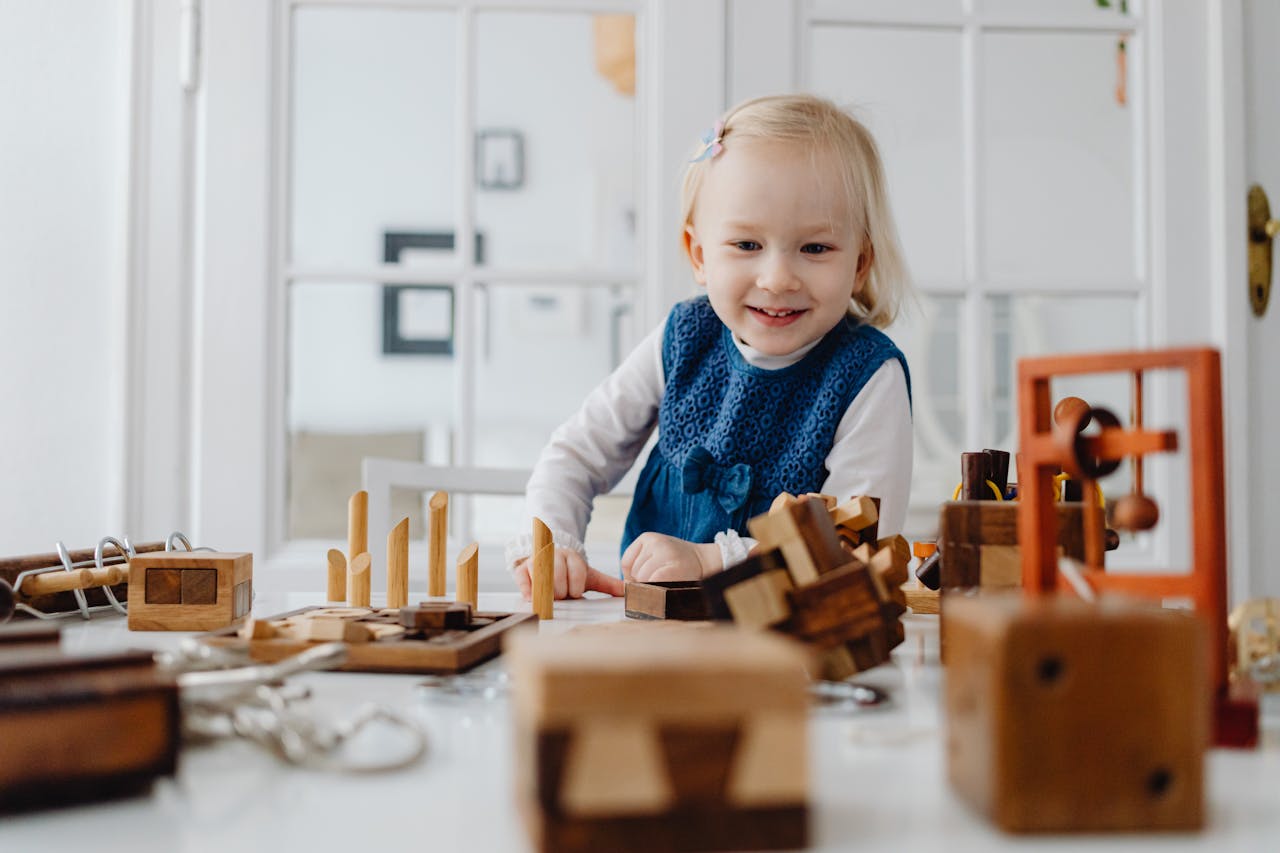Montessori Tips for Encouraging Fine Motor Skills in Young Children

Fine motor skills are the small movements of the hands, wrists, and fingers that are crucial for tasks like writing, buttoning a shirt, or tying shoelaces. Developing these skills is an important part of early childhood, impacting a child's ability to perform daily activities and succeed in school. The Montessori approach, with its focus on hands-on learning and independence, provides valuable tools for nurturing these skills.
Understanding Fine Motor Skills in Early Childhood
Fine motor skills involve the coordination of small muscles in the hands and fingers. These skills are crucial for children's development because they enable kids to perform essential tasks like grasping objects, writing, and fastening buttons. As children grow, their ability to manipulate small objects with precision improves, contributing to their independence and self-confidence.
During early childhood, children typically reach several fine motor milestones. For example, by age two, many children can stack a few blocks, turn pages in a book, and start sorting shapes. By the time they are four, kids often show the ability to draw simple shapes, cut paper with scissors, and use utensils at mealtime. Mastering these skills helps children as they transition to more complex tasks like writing letters or dressing themselves.
Fine motor skills impact many aspects of a child's daily life and learning. Kids with well-developed fine motor skills can handle tasks at school, such as writing, cutting, and drawing, more easily. These skills also play a vital role in self-care activities like brushing teeth or tying shoelaces. Encouraging the development of fine motor skills through play, activities, and learning experiences is essential for a child's overall growth and success.
Incorporating Montessori Principles to Enhance Fine Motor Development
The Montessori method offers an excellent framework for nurturing fine motor skills. This approach emphasizes hands-on learning and gives children the freedom to explore activities that interest them, enhancing their fine motor capabilities. Montessori classrooms are rich with materials and tools designed to engage children's hands and minds, building dexterity and focus.
Independence lies at the heart of the Montessori philosophy. Allowing children to choose their activities helps them take ownership of their learning, fostering self-discipline and confidence. In this environment, children often engage in self-directed tasks that naturally encourage fine motor development, such as pouring water, threading beads, and using tweezers to move small objects. These activities require concentration and precision, which are key to honing fine motor skills.
The use of natural materials and child-sized tools is a significant component of Montessori education. Providing children with appropriately sized tools makes tasks feel achievable and encourages them to engage more deeply. Wooden puzzles, metal insets, and fabric dressing frames are examples of materials that Montessori classrooms use to help develop fine motor skills. This hands-on approach ensures that children practice and refine their skills in a meaningful way.
Practical Activities to Boost Fine Motor Skills
Engaging children in activities that challenge and develop their fine motor skills can be both fun and beneficial. Montessori-inspired activities are great for this, as they encourage children to use their hands and fingers in precise ways. Here are some activities that can significantly enhance fine motor skills:
- Bead Threading: Provide children with large beads and a string. This activity helps improve hand-eye coordination and finger dexterity as they thread beads one by one.
- Cutting with Scissors: Practice using blunt-tipped scissors on easy-to-cut materials like construction paper or old magazines. This strengthens hand muscles and teaches control.
- Playing with Clay: Clay offers endless possibilities for pinching, rolling, and shaping, all of which enhance dexterity and creativity.
Incorporating these activities into everyday routines can further support fine motor development. Encourage children to help with tasks like buttoning their clothes, pouring water into glasses, or using a spoon to mix ingredients while cooking. These simple household tasks are not only practical but also highly effective in developing fine motor skills.
Creating a Supportive Environment for Fine Motor Growth
A well-prepared environment is essential for encouraging the development of fine motor skills. By setting up a Montessori-friendly space at home, you create an area where children feel free to explore and practice these important skills.
Start by organizing materials in a way that allows children to access them easily. Use low shelves to display tools and activities within their reach. This independence empowers children to choose what they want to work on, fostering concentration and persistence.
It's important to include a variety of child-sized tools and natural materials. Items like small tongs, tweezers, and child-sized brooms encourage children to engage in precise movements. They should practice activities under adult supervision to ensure safety while building their skills.
Additionally, consider incorporating sensory elements such as sand, water, or textured fabrics for a more engaging experience. These elements can stimulate curiosity and provide more opportunities for sensory exploration.
Conclusion
Fine motor skills are key building blocks in a child's development, affecting everything from their ability to feed themselves to their readiness for writing. The Montessori approach offers a natural method for enhancing these skills through purposeful activities and a supportive environment. By using Montessori principles at home, parents can nurture a child's growth in a nurturing space that respects their autonomy and eagerness to learn.
At Hatchberry, we provide Montessori-inspired resources and guidance to help you foster your child's development effectively. Our expert advice and well-crafted materials ensure that you are equipped to offer the best learning experiences for your child. Visit us to discover how you can integrate our Montessori products into your child's daily activities and create an environment rich in learning and growth.








